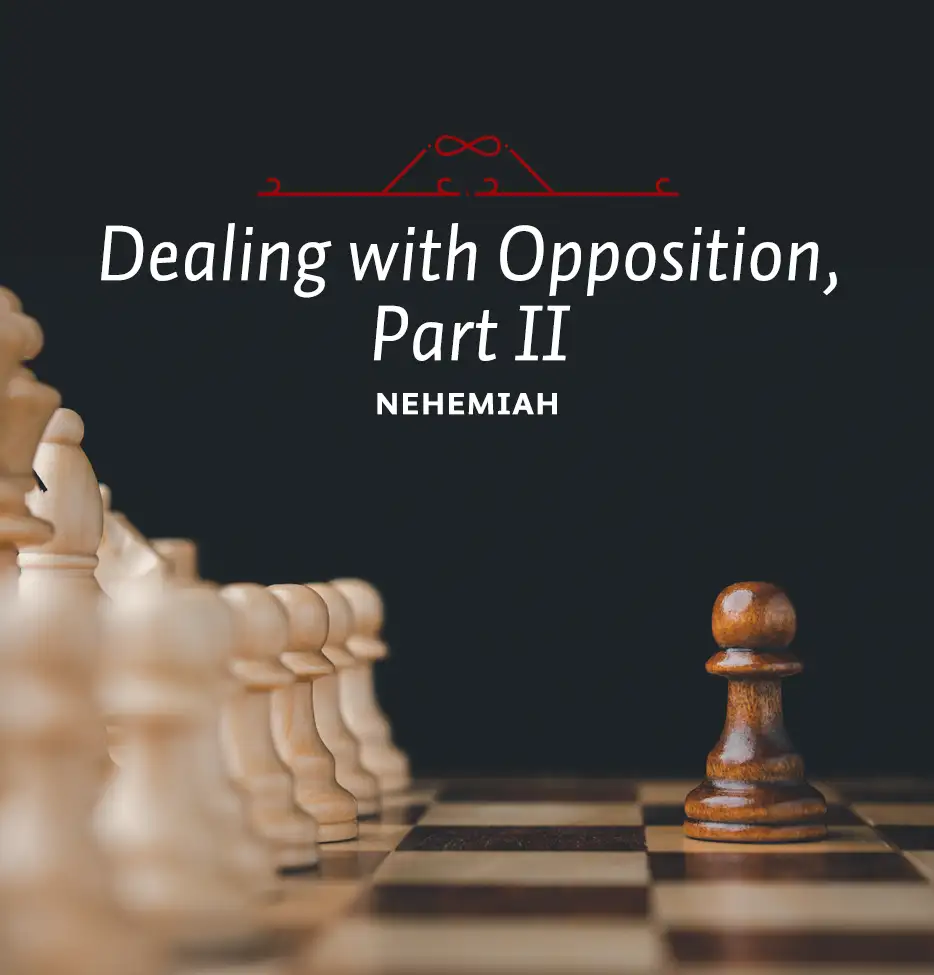The problem that erupted internally at this point is described very well in verses 1-5. “Now the men and their wives raised a great outcry against their Jewish brothers. Some were saying, “We and our sons and daughters are numerous; in order for us to eat and stay alive, we must get grain.”
Others were saying, “We are mortgaging our fields, our vineyards and our homes to get grain during the famine.”
Still others were saying, “We have had to borrow money to pay the king’s tax on our fields and vineyards. Although we are of the same flesh and blood as our countrymen and though our sons are as good as theirs, yet we have to subject our sons and daughters to slavery. Some of our daughters have already been enslaved, but we are powerless, because our fields and our vineyards belong to others.”
These verses describe a classic example of the gap between rich and poor and the way in which the rich tend—they do not always do this, but the tendency is this way—to control things so that they get richer while the poor get poorer. It was a case of pure exploitation, and what made it worse was that it occurred within the Jewish community, among those who should have been helping one another.
Originally the Jews who had returned to Israel from Babylon were well off. Once in Jerusalem many of the Jews were either wealthy enough or else had prospered sufficiently to panel their homes, a luxury at one time reserved only for kings (Haggai 1:4). When the temple was built the people also gave generously for its embellishment (Neh. 7:71-72).
Besides, only thirteen years before Nehemiah’s arrival, a second group of exiles had returned with Ezra, and these had brought additional “silver and gold” and “the freewill offerings of the people” left in Babylon (Ezra 7:16). Other gifts from Babylon seem to have been arriving regularly (Zech. 6:10).1
What changed this advantageous situation? Why, by the time we reach Nehemiah 5, are some of the people so poor?
There were several factors. One of the cries of the people recorded in chapter 5 mentions famine, so a lack of rain and a consequent failure of the crops was one problem. Others complained about the king’s taxation, though scholars generally agree that this was not particularly burdensome, at least not for any but the extreme poor. These were contributing factors, but the real problem—which Nehemiah seemed to get to immediately—is that the wealthier Jews had been exploiting those who were less well off and actually reducing some of them to the desperate state of slavery. Exploiting? Perhaps that is too strong a word. The wealthy would never have used it. They would have claimed rather that they were merely lending money in perfectly legal ways, perhaps even doing it to “help” their poorer countrymen. But whether it was technically legal or not, the rich were certainly taking advantage of the situation. As Nehemiah says later, their actions were “not right” (v. 9).
Probably the complaints in verses 1-5 are expressions of an increasingly desperate situation to which any of the poor could be subject. The sequence would be: 1) a lack of adequate food, or hunger; 2) the mortgaging of the fields for short term cash to buy grain and pay taxes; 3) the loss of the fields because of an inability to repay what was borrowed; and finally 4) the selling of sons and daughters either into indentured service or outright slavery for pure survival’s sake. The details are different, but there is a similarly downward-spiraling sequence among the poor today. And like today, it was the poor, not the well-off, who protested the injustice.
1Cyril J. Barber, Nehemiah and the Dynamics of Effective Leadership (Neptune, NJ: Loizeaux Brothers, 1976), 77-78.






